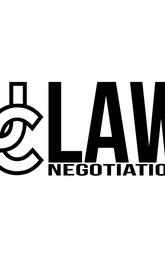March 2, 2016
Georgetown's Abbe Smith presents at law school
Abbe Smith, Professor, Georgetown University Law Center gave a presentation on her paper "Representing Rapists: The Cruelty of Cross-Examination & Other Challenges for a Feminist Criminal Defense Lawyer" at the law school on Mar. 1.
(Event summary provided by Professor Erin Sheley)
Professor Smith ‘s talk was based on her forthcoming paper “Representing Rapists: The Cruelty of Cross-Examination and Other Challenges for a Female Criminal Defense Lawyer.” In her talk she expanded on the paper’s central question: is it possible to bring what she describes as an “ethos of feminism” to bear on the project of discrediting rape victims, many of whom you know to be truthful? Professor Smith suggested that her defense of accused rapists should be understood as part of a feminist project insofar as it is driven by a skepticism of state power and the law at its most violent when deployed against the criminally accused. Citing her early inspiration as Atticus Finch in To Kill a Mockingbird, she noted the phenomenon of over-incarceration in U.S. prisons and described her identity in opposition to those circumstances as that of a “poverty lawyer.”
Indeed, she described as her primary reasons for doing that particularly fraught form of defense work: 1.) the moral obligation to defend the poor; 2.) the fact that sex cases are challenging, interesting, and triable, and 3.) what she describes as “the pull of flawed humanity.” That said, in both the paper and the talk, Professor Smith grappled with the experiences of rape victims themselves, discussing the rape accounts provided by Alice Sebold and S.J. Brison in their memoirs, particularly their respective fear of and hatred for the defense attorneys who cross-examined them. Indeed she acknowledged the fact that as a defense lawyer, she must—to fulfill her ethical obligations to her client—often play on the sexism, racism, and gender stereotypes that have long comprised the second act of violence against rape victims who attempt to testify against their assailants. She concludes, however, that “defense lawyers don’t get to apologize” because it would be cowardly: instead, “the victims get to hate us.”

